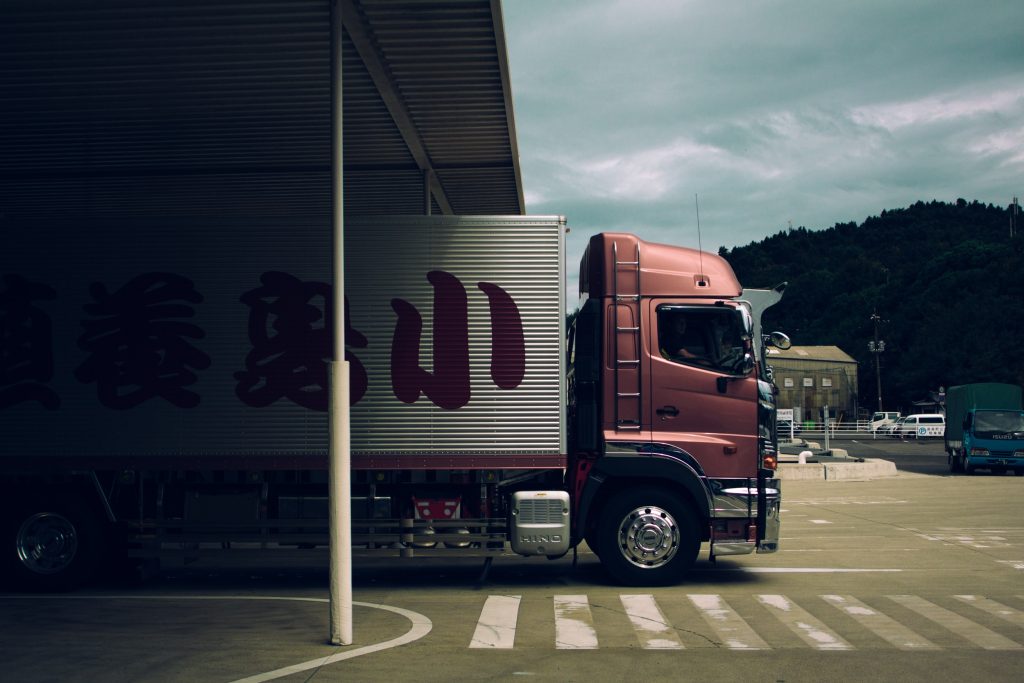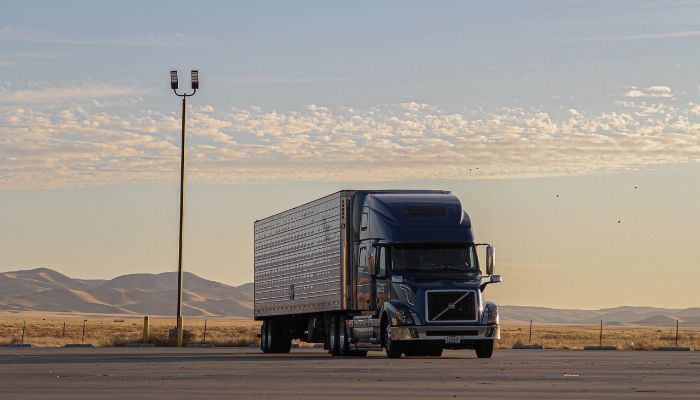
In the world of logistics and transportation, ensuring the safety and reliability of drivers is paramount. Trucking background checks play a crucial role in this process, offering employers a glimpse into a driver’s history and qualifications. These checks are not just a formality; they are an essential step in hiring competent and trustworthy drivers.
Trucking background checks are comprehensive evaluations conducted by employers in the transportation industry to assess a driver’s qualifications, driving history, criminal record, and substance abuse tests. These checks hire only qualified and safe drivers, thereby maintaining safety standards and the company’s reputation in the industry.
Let’s dive into the importance, components, and legal implications of these checks. We’ll also show you how to conduct them effectively. So, buckle up and embark on this enlightening journey with us.
Table of contents
Understanding Trucking Background Checks
Before you embark on a career in trucking, it’s crucial that you understand what a trucking background check entails and why it’s such an essential part of the hiring process.
Trucking background checks are thorough investigations that employers conduct to confirm the suitability of commercial drivers. They typically involve a review of your motor vehicle records, employment history, and a criminal background check.
Your motor vehicle records are scrutinized for any serious violations or patterns of minor offenses. This is to ensure that you’re a responsible driver who respects traffic rules.
Your employment history, on the other hand, offers insight into your reliability, punctuality, and integrity. It’s essential that you’ve demonstrated professionalism in your previous roles.
Lastly, a criminal background check is carried out to safeguard the company’s reputation, its goods, and the public. Any serious criminal convictions could disqualify you from a trucking job. Remember, honesty is always the best policy. If there are any blemishes on your record, it’s better to disclose them upfront rather than have them discovered during the background check process. This level of scrutiny is similar to what one might expect in a volunteer background checks, ensuring that individuals in positions of trust are vetted thoroughly.
Understanding these aspects can help you prepare for a career in trucking.
Types of Background Checks in the Trucking Industry

The trucking industry plays a pivotal role in the transportation of goods and services across the nation. Ensuring the safety and reliability of truck drivers is paramount, and this is where background checks come into play.
Trucking companies often employ a variety of background screenings to ensure they hire the best candidates. One of the primary checks is the Motor Vehicle Records check, which provides insights into a prospective driver’s driving record. This check helps employers identify any traffic violations, alcohol violations, or instances of reckless driving that might indicate unsafe driving practices.
Another crucial check is the criminal background check. This screening delves into a job candidate’s criminal history, highlighting any criminal convictions or felony conviction that might be of concern. Given the strict industry standards, having a clean record is often a prerequisite for commercial drivers.
Employment history verification is also standard. Trucking carriers want to ensure that their potential employees have a stable work history and positive references from previous employers. This check can reveal if a driver has had issues at past jobs, such as negligence or non-compliance with DOT regulations.
Drug testing and alcohol screenings are federal requirements, ensuring that drivers are not under the influence while operating a commercial vehicle. The Pre-Employment Screening Program further aids companies in making an informed hiring decision by providing a comprehensive view of a driver’s safety performance history.
In conclusion, for the transportation industry, especially for roles involving commercial motor vehicles, it’s vital to have accurate and comprehensive background checks. These checks not only ensure compliance with federal regulations but also play a crucial role in maintaining road safety.
Importance of Background Checks in Trucking

You can’t underestimate the importance of background checks in the trucking industry. They’re a crucial part of the hiring process, ensuring that only safe drivers are put behind the wheel.
Trucking background checks help to verify a candidate’s driving history, criminal records, and employment history. They’re an essential tool to protect not only your company’s reputation but also the safety of other road users. By conducting thorough background checks, you’re proactively minimizing the risk of accidents caused by drivers with a history of reckless or impaired driving.
The importance of background checks in trucking also extends to compliance with federal regulations. The Federal Motor Carrier Safety Administration mandates that trucking companies conduct these checks to ensure their drivers meet certain safety standards.
In essence, the background check process upholds the integrity of the trucking industry. It assures the public that trucking companies are responsible and committed to safety. By hiring only qualified, competent, and safe drivers, you’re helping to maintain a high standard of safety and professionalism within the industry.
Similarly, in other industries, such as education, a student background check is performed to ensure the safety and integrity of the academic environment, especially for positions that require handling sensitive information or operating vehicles.
Components of a Trucking Background Check
In the process of conducting a trucking background check, it’s critical to understand the key components involved. Trucking companies use these checks to ensure their drivers meet the standards set by the Department of Transportation (DOT) and to uphold their reputation for safety and reliability.
The truck driver background check typically includes:
- Driving Record Check: This check will reveal if you have any violations or suspensions on your driving record. Accidents, DUIs, and speeding tickets are all things that trucking companies will closely examine.
- Criminal History Check: Companies perform this check to ensure you haven’t participated in any criminal activities that might pose a risk on the road.
- DOT Background Check: This check includes a review of your driver qualification file and any previous DOT-regulated employment.
- Pre-Employment Screenings: These screenings could include drug and alcohol tests or physical exams to ensure you’re fit for the job.
Understanding these components is vital as you prepare for a career in trucking. Remember, each trucking company may have different expectations, but these are the key elements that make up the backbone of a comprehensive truck driver background check.
Laws and Regulations

Federal and state laws and regulations govern the trucking industry to ensure the safety and integrity of the transportation industry. These laws are instrumental in guiding trucking companies through the hiring process. It also ensures that they make informed decisions when recruiting truck drivers.
Federal Laws and Regulations:
- Fair Credit Reporting Act (FCRA): This act regulates the collection and use of consumer credit information. Trucking companies often use this information as part of the background check process to gauge a potential employee’s financial responsibility. The FCRA ensures that background check companies provide accurate information and that job candidates have the right to dispute any inaccuracies.
- Fair Chance to Compete for Jobs Act: The legislation gives individuals with a criminal background a fair chance at federal employment. It prevents federal contractors from asking about a candidate’s criminal history until they make a conditional job offer.
- Title VII of the 1964 Civil Rights Act: This act prohibits employers from discriminating against job candidates based on race, color, religion, sex, or national origin. It’s crucial for trucking carriers to ensure their employment screening process is fair and doesn’t inadvertently discriminate against any group.
- 49 CFR regulations: Overseen by the Federal Motor Carrier Safety Administration, these regulations set the standards for commercial drivers. They cover everything from license verification to pre-employment DOT drug tests, ensuring that drivers meet the minimum requirements to operate commercial vehicles safely.
State Laws:
- Ban-the-Box Laws: These laws aim to provide individuals with criminal records a fair chance at employment by prohibiting employers from asking about criminal history on initial job applications. States vary in the specifics of these laws, but the primary goal is to evaluate candidates based on their qualifications before considering their criminal background.
- Driving Record Checks: State laws regarding driving record checks can vary significantly. While some states might allow employers to view traffic violations or alcohol violations from many years ago. Others might limit the time period to a three-year check. It’s essential for trucking companies to be aware of these variations to ensure they remain compliant.
In conclusion, understanding and adhering to these laws and regulations is not just a matter of legal compliance for trucking companies. It’s about ensuring that the background check regime they employ is both fair and thorough, safeguarding the company, its employees, and the general public.
Conducting Effective Trucking Background Checks
To conduct a thorough and effective trucking background check, it’s crucial that every aspect is meticulously examined. The background screening process must be comprehensive, taking into account the individual’s personal, professional, and driving histories. The DOT regulations regulate this as part of the pre-employment screening program to ensure safety, reliability, and compliance.
When conducting trucking background checks, consider the following:
- Driving Records: Inspect the applicant’s driving history. Look for any traffic violations, accidents, or revoked licenses. DOT regulations require a clean driving record for commercial drivers.
- Employment History: Validate previous employment information. Verify the dates of employment, reasons for leaving, and roles performed.
- Criminal Background: Check for any criminal history. It’s essential to know if the applicant has a record of offenses that could impact their ability to perform their duties safely.
- Drug and Alcohol Tests: Conduct these tests as mandated by DOT regulations. These results can indicate potential risks.
Effective trucking background checks are crucial to hiring qualified, reliable drivers. Remember, your company’s reputation and safety depend on the quality of your drivers. Don’t rush this process; take the time to ensure it’s done correctly.
Conclusion
So, you’re contemplating the ins and outs of trucking background checks. They’re vital, loaded with various components, and have significant legal implications. But how will you conduct them effectively?
The answer lies just around the bend. Stay tuned, because navigating this road requires precision, knowledge, and a keen eye for detail.
Get ready to delve deeper into the world of trucking background checks, where safety meets compliance, and your journey is just beginning.
FAQs
Why are background checks mandatory in the trucking industry?
Background checks are essential in the trucking industry to ensure the safety of both the Individual Driver and the public. Transportation Companies need to be certain that their Potential Drivers meet the Strict Standards set by federal and state regulations. Negligent Hiring can lead to significant Property Damage, legal trouble, and even loss of life. Moreover, trucking carriers use background checks to help reduce the turnover rate by hiring only qualified drivers.
What specific checks are included in a DOT background screening?
A DOT background screening encompasses several checks. This includes Employment Verification, Driver Safety Performance History, Accident History, Alcohol History Verifications, and Three-Year Roadside Inspection History. DOT-Regulated Employers also look into Criminal Record Checks, Credit Checks, and Pre-Employment Drug Tests. We scrutinize the Driver Motor Vehicle Records and pay close attention to Motor Vehicle histories to identify any poor driving histories or license suspensions.
How do background checks help in ensuring road safety?
Background checks play a pivotal role in road safety by filtering out drivers with Bad Driving records or histories of Alcohol Abuse Violations. By reviewing an applicant’s Safety Record, Transportation Companies can avoid hiring those with a history of accidents or Handheld Device Violations. This ensures that only responsible and Qualified Drivers operate heavy vehicles, reducing the risk of accidents.
Are there any legal restrictions on what can be included in a background check report?
Yes, there are Legal Requirements and restrictions on what can be included in a background check report. The Consumer Reporting Agency must adhere to the Background Check Laws, including the Fair Credit Reporting Act (FCRA). If employers find any negative information, they must provide Adverse Action Notices to the job applicant. Employers should always seek legal advice to ensure they comply with these regulations and avoid potential legal issues.